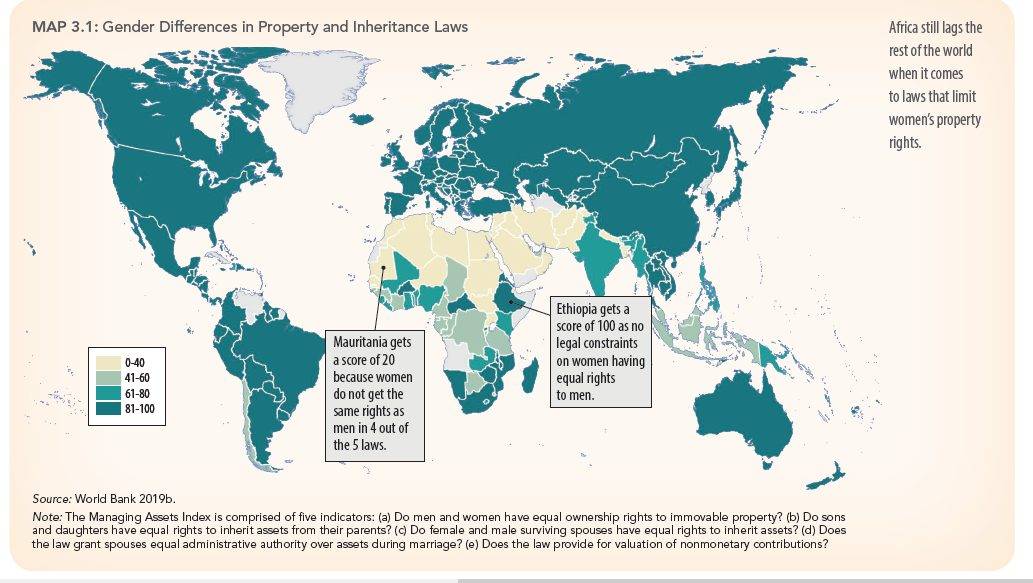When It Comes to Women Property Rights, Africa is Still in the Dark

The push to enable women to own property is enabling them to experience economic freedoms that were not accorded to them in the past. However, most African countries have been found to be lagging behind, globally, in women property ownership rights.
According to the World Bank, there are legal hindrances that prevent women from enjoying the same rights to property as men, and Africa is a culprit.
“In some countries, statutes related to marriage, divorce, inheritance, ownership of land and property rights, and labour openly discriminate against women,” the Africa’s Pulse 2019 report said.
“For example, according to the Women, Business and the Law database, in 11 of 47 countries in Sub-Saharan Africa, women and men do not have equal legal ownership rights to immovable property; and in 13 of 47 countries, female and male surviving spouses do not have equal rights to inherit assets,” it added.
The following infographic depicts property and inheritance laws globally.

However, the World Bank says that there are some laws in Africa that have positively impacted the efforts for gender balance. It says that these reforms have a correlation to increases in women’s labour force participation, access to land and educational attainment.
This means that if more doors are opened for women in the workplace, laws towards property ownership tend to change for the better.
The World Banks cites several of its research findings like “Tackling the Global Profitarchy: Gender and the Choice of Business Sector”, that suggests that women bring in more profits in sectors dominated by men as opposed to women-led sectors.
“Globally, the average male-owned firm in a male-dominated sector earned slightly more than double the profits of a female-owned firm in a female-concentrated sector (that is, about 116 per cent more). This pattern was driven mostly by the 54 developing economies in the sample, including 15 countries in Sub-Saharan Africa,” the report said.
In contrast, “Using data from the Future of Business survey collected by Facebook, this pattern of sectoral segregation was examined on a global level. Indeed, it was found that women who enter male-dominated sectors earn 66 per cent higher profits than women who remain in traditionally female-concentrated sectors.”
The World Bank urged the change in policy, to allow women to access property and remove gender bias in the working environment.
Feature Image Courtesy: African Development Bank